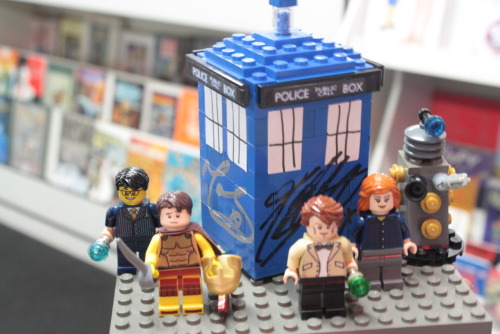Supporting Victims of Sexual Harassment
SF/F fandom (and society in general) hasn’t always been very supportive of victims of sexual harassment, particularly when the harasser is a big name or someone in a position of power. Those who choose to speak out are often mocked, belittled, threatened, accused of being publicity-whores, or worse. Even people who want to be supportive might not know what to say or do.
So with the help of some friends, I’ve put together a list of ideas about what to do and what not to do if you want to avoid looking like a dick and actually support those who have been sexually harassed.
1. Don’t Make Excuses. At the 2006 Worldcon, Harlan Ellison grabbed Connie Willis’ breast on stage. Time after time, I saw people jumping in to defend him by saying, “Oh, that’s just Harlan.” That’s a bullshit excuse, right up there with “Boys will be boys,” and “Oh, he didn’t mean any harm.” It’s not your job to excuse, justify, or defend the behavior, especially if you weren’t even present. By doing so, you’re basically saying, “I don’t care about your feelings or what this person did to you; I’m more worried about protecting the person who harassed you.”
2. Don’t Minimize. In one of my posts about sexual harassment, a commenter talked about how she was expecting a bunch of overly sensitive PC whiners who couldn’t take a joke. Don’t be that person. If you’re not the one being harassed, then what the hell gives you the right to judge and tell someone else they’re overreacting?
3. Don’t Immediately Run Off to “Kick his Ass!” Believe me, I understand the urge. When I hear someone has harassed and hurt one of my friends, I want to do something. I want to punish the harasser. I want to teach him (or her) to never pull that shit again … do you notice how all of these sentences start with “I”? How I’m talking about what I want and need, not what the person who was harassed is asking for? It’s more helpful to offer to be that person’s backup: to accompany them if they want to confront the person, or to tell them you’ve got their back during the convention or event.
4a. Don’t be Afraid to Intervene. If you see something that looks like harassment, say something. Interrupt and ask, “Hey, is everything okay here?” Yes, it’s hard. Yes, it can be embarassing if it turns out nothing was going on. But which risk would you rather take: that you might feel a little foolish, or that you’re turning your back and allowing someone to continue harassing another person? I’ll be saying more about intervention in my next post.
4b. Don’t be Afraid to Call Your Friends on their Shit. If you know your friend is harassing people, then for God’s sake, call him (or her) on it. Be harsh. Be blunt. Because your friend might actually listen to you. By staying silent, you are enabling and tacitly allowing that person to continue harassing others.
5. Don’t Try to Speak For Someone Else. When I was at World Fantasy last year, I ended up talking to multiple people about a certain editor who had sexually harassed them. It wasn’t my place to disclose their names or the name of the editor. I did end up writing a blog post with names removed, figuring since this was a common behavior, there was no way to identify the people who had spoken with me. Some of those people still felt that I had violated their confidentiality. Reporting sexual harassment or going public is a very hard choice, and it’s not your choice to make for someone else.
6. Don’t Pressure the Victim. Offer options. Offer to go with the person or to be their backup if they decide to report or confront. But don’t say “This is what you have to do, and if you don’t do it then it’s all your fault when this guy harasses someone else!” Because first off, when that guy harasses someone else, it’s his fault. It’s his choice. If you want more people to come forward and report sexual harassment, work to create an enviroment where it’s safe for them to do so.
7. Check Your Own Behaviors. A lot of harassers either don’t think of what they’re doing as harassment or else they rationalize what they’re doing. So check yourself. Check your physical and verbal behaviors. If you’re uncertain whether a gesture or joke or compliment would be appreciated, ask. If an interaction leaves you feeling weird, ask someone else for a reality-check.
8. Use Your Voice. Especially for guys, it’s easy to sit back and ignore the problem. To let other people worry about it. But your voice matters. Speaking up to say this kind of behavior is not okay matters. It matters to victims, who deserve to know that people are on their side, and it matters to harassers, who have to know that others don’t condone their crap.
#
Related:
Reporting Sexual Harassment in SF/F Circles
The Backup Project






 1. Are Muppets immortal? Some Muppets appear older than others: Statler and Waldorf, for example.
1. Are Muppets immortal? Some Muppets appear older than others: Statler and Waldorf, for example.  6. Who owns the patents from Muppet Labs? They invented a
6. Who owns the patents from Muppet Labs? They invented a  The Legend of Jig Dragonslayer
The Legend of Jig Dragonslayer
 Yesterday, I received some dust jackets for Libriomancer
Yesterday, I received some dust jackets for Libriomancer 